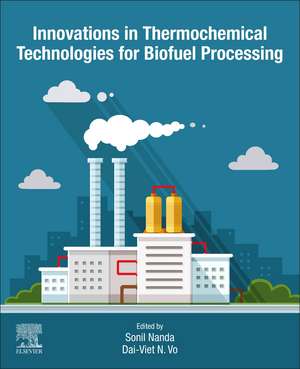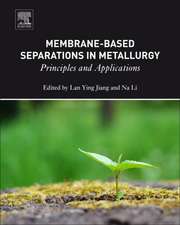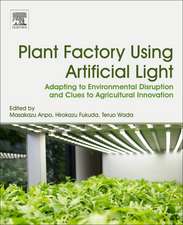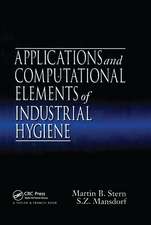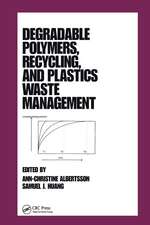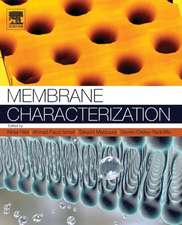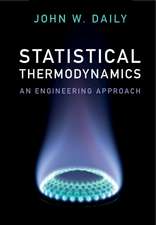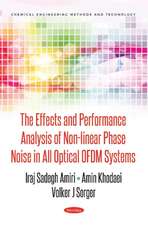Innovations in Thermochemical Technologies for Biofuel Processing
Editat de Sonil Nanda, Dai-Viet N. Voen Limba Engleză Paperback – 25 mar 2022
The book comprehensively discusses the strengths, weaknesses, opportunities and threats of notable biofuels (e.g., bio-oil, biocrude oil, biodiesel, bioethanol, biobutanol, bio-jet fuels, biohydrogen, biomethane, synthesis gas, hydrocarbon fuels, etc.).
- Addresses solutions for clean fuel, energy security, waste management, waste valorization, reduced greenhouse gas emissions, carbon capture and sequestration, circular economy and climate change mitigation
- Includes applications of thermochemical conversion and reforming technologies for waste biomass to biofuels
- Covers current technologies in alternate fuels and chemicals production, a few of which include conversion technologies (i.e., liquefaction, gasification, pyrolysis, torrefaction, transesterification, organic transformation, carbon-carbon and carbon-heteroatom coupling reactions, oxidation, and reforming processes, etc.), hydrotreating technologies (i.e., hydrogenation, hydrodesulfurization, hydrodenitrogenation, hydrodearomatization and hydrodemetalization) and catalytic processes.
Preț: 1043.60 lei
Preț vechi: 1368.83 lei
-24% Nou
Puncte Express: 1565
Preț estimativ în valută:
199.72€ • 216.86$ • 167.76£
199.72€ • 216.86$ • 167.76£
Carte tipărită la comandă
Livrare economică 15-29 aprilie
Preluare comenzi: 021 569.72.76
Specificații
ISBN-13: 9780323855860
ISBN-10: 0323855865
Pagini: 338
Dimensiuni: 191 x 235 mm
Greutate: 0.59 kg
Editura: ELSEVIER SCIENCE
ISBN-10: 0323855865
Pagini: 338
Dimensiuni: 191 x 235 mm
Greutate: 0.59 kg
Editura: ELSEVIER SCIENCE
Cuprins
Section 1: Biomass Feedstocks: Classification, Characterization and Candidacy
1. Recent progress in the characterization of feedstocks and products for design and optimization of biomass thermochemical conversions
2. State-of-the-art approaches in biomass conversion to fuels and chemicals
3. Upcycling biomass resources into fuels and chemicals to support sustainability
Section 2: Biomass-to-Liquid, Biomass-to-Gas and Gas-to-Liquid Technologies
4. Production of solid fuel and bio-oil for energy application via slow, fast and intermediate pyrolysis processes
5. Progress in biomass fast pyrolysis technique: Outlook of modern experimental and theoretical approaches
6. Biofuel production with integrated pyrolysis and catalytic upgrading system
7. Thermochemical valorization of oil palm biomass to value-added products: A biorefinery concept
8. Progress of biomass air gasification to produce energy-dense synthesis gas
9. Hydrothermal gasification of biomass and organic wastes for hydrogen production: Advances, Challenges and Prospects
Section 3: Reforming and Fuel Upgrading Technologies
10. Clean and sustainable biofuels through syngas fermentation: Challenges and opportunities
11. Hydrogen and carbon co-generation from catalytic methane decomposition: Current progress and future trends
12. Artificial neural network modeling method for forecasting syngas generation from reforming processes
13. Carbon-based catalyst in the production of biodiesel: A review
14. Upgrading bio-hydrogenated diesel from palm-fatty acid with self-reliable hydrogen synthesis
1. Recent progress in the characterization of feedstocks and products for design and optimization of biomass thermochemical conversions
2. State-of-the-art approaches in biomass conversion to fuels and chemicals
3. Upcycling biomass resources into fuels and chemicals to support sustainability
Section 2: Biomass-to-Liquid, Biomass-to-Gas and Gas-to-Liquid Technologies
4. Production of solid fuel and bio-oil for energy application via slow, fast and intermediate pyrolysis processes
5. Progress in biomass fast pyrolysis technique: Outlook of modern experimental and theoretical approaches
6. Biofuel production with integrated pyrolysis and catalytic upgrading system
7. Thermochemical valorization of oil palm biomass to value-added products: A biorefinery concept
8. Progress of biomass air gasification to produce energy-dense synthesis gas
9. Hydrothermal gasification of biomass and organic wastes for hydrogen production: Advances, Challenges and Prospects
Section 3: Reforming and Fuel Upgrading Technologies
10. Clean and sustainable biofuels through syngas fermentation: Challenges and opportunities
11. Hydrogen and carbon co-generation from catalytic methane decomposition: Current progress and future trends
12. Artificial neural network modeling method for forecasting syngas generation from reforming processes
13. Carbon-based catalyst in the production of biodiesel: A review
14. Upgrading bio-hydrogenated diesel from palm-fatty acid with self-reliable hydrogen synthesis
